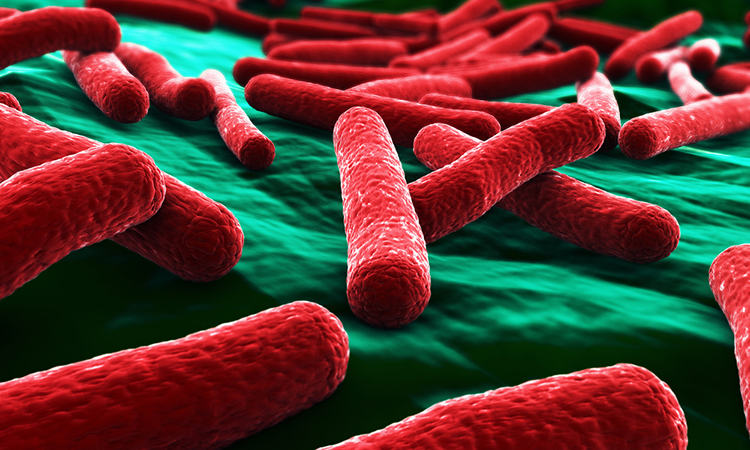Researchers modifiy E. coli to produce chondroitin sulphate
Posted: 3 March 2021 | Victoria Rees (Drug Target Review) | No comments yet
A team has created a biosynthetic pathway for E. coli that allows the bacteria to produce a common arthritis drug.


Envisioning an animal-free drug supply, scientists have reprogrammed a common bacterium to make a designer polysaccharide molecule used in pharmaceuticals and nutraceuticals. The researchers modified E. coli to produce chondroitin sulphate, a drug best known as a dietary supplement to treat arthritis that is currently sourced from cow trachea.
According to the team, from the Rensselaer Polytechnic Institute, US, genetically engineered E. coli is used to make a long list of medicinal proteins. However, it has taken years to coax the bacteria into producing even the simplest in this class of linked sugar molecules – called sulphated glycosaminoglycans – that are often used as drugs and nutraceuticals.
“It is a challenge to engineer E. coli to produce these molecules and we had to make many changes and balance those changes so that the bacteria will grow well,” said Professor Mattheos Koffas, lead researcher.
Drug Target Review has just announced the launch of its NEW and EXCLUSIVE report examining the evolution of AI and informatics in drug discovery and development.
In this 63 page in-depth report, experts and researchers explore the key benefits of AI and informatics processes, reveal where the challenges lie for the implementation of AI and how they see the use of these technologies streamlining workflows in the future.
Also featured are exclusive interviews with leading scientists from AstraZeneca, Auransa, PolarisQB and Chalmers University of Technology.
The team say that engineering E. coli to produce the drug has many advantages over the current extractive process or even a chemoenzymatic process.
“If we prepare chondroitin sulphate chemoenzymatically and we make one gram which takes a month to make, if someone says, ‘Now I need 10 grams,’ we are going to have to spend another month to make 10 grams,” said Professor Robert Linhardt, one of the researchers. “Whereas, with the fermentation, you throw the engineered organism in a flask and you have the material, whether it is one gram, 10 grams or a kilogram. This is the future.”
“The ability to endow a simple bacterium with a biosynthetic pathway only found in animals is critical for synthesis at commercially relevant scales. Just as important is that the complex medicinal product that we produced in E. coli is structurally the same as that used as the dietary supplement,” said Professor Jonathan Dordick, another of the researchers.
The three major steps the team used for the bacteria so that it would produce chondroitin sulphate are:
- introducing a gene cluster to produce an unsulphated polysaccharide precursor molecule
- engineering the bacteria to make an ample supply of an energetically expensive sulphur donor molecule
- introducing a sulphur transferase enzyme to put the sulphur donor molecule onto the unsulphated polysaccharide precursor molecule.
According to the researchers, introducing a working sulphotransferase enzyme posed a particularly difficult challenge.
“The sulphotransferases are made by much more complex cells,” Koffas said. “When you take them out of a complex eukaryotic cell and put them into E. coli, they are not functional at all.”
The team first produced a structure of the enzyme and then used an algorithm to help identify mutations they could make to the enzyme to produce a stable version that would work in E. coli.
Although the modified bacteria produce a relatively small yield – on the order of micrograms per litre – the researchers say they thrive under ordinary lab conditions, offering a robust proof-of-concept.
The work was published in Nature Communications.
Related topics
Bioengineering, Biopharmaceuticals, Microbiology
Related conditions
Arthritis
Related organisations
Rensselaer Polytechnic Institute



